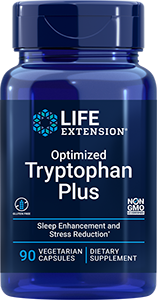- Science & Research
- Science News
- Newsletter
- 2013
- April 19

Newsletter
Newsletter
Meta Analysis Concludes Protective Effect For L Carnitine Against Premature Mortality In Heart Attack Patients
Meta-analysis concludes protective effect for L-carnitine against premature mortality in heart attack patients
Thursday, April 19, 2013. A meta-analysis reported on April 12, 2013 in Mayo Clinic Proceedings found an association in myocardial infarction patients between supplementation with L-carnitine and a lower risk of ventricular arrhythmias, angina and death from all-causes in comparison with placebo over a period of up to two months. Carnitine is a trimethylamine that occurs in meat and other foods, which is synthesized in the body from the amino acid lysine. L-carnitine has been suggested as beneficial for heart disease patients for the past several decades, and is widely available as an over-the-counter supplement. "Although therapies for acute coronary syndrome (ACS), including percutaneous coronary intervention, dual antiplatelet therapy, beta-blockers, statins, angiotensin-converting enzyme inhibitors (ACEIs), omega-3 fatty acids, and cardiac rehabilitation, have markedly improved clinical outcomes, adverse cardiovascular events still occur too frequently after ACS," noted lead author James DiNicolantonio, PharmD of Wegmans Pharmacy in Ithaca, New York. "One promising therapy for improving cardiac health involves using L-carnitine to improve free fatty acid levels and glucose oxidation." For their analysis, Dr DiNicolantonio and his associates selected 13 placebo-controlled trials involving a total of 3,629 men and women who had experienced an acute myocardial infarction. Eleven of the trials reported data on mortality, which included 250 deaths from all causes. The researchers uncovered a 27% reduction in all-cause mortality in association with L-carnitine supplementation in comparison with a placebo over a median follow-up period of up to two months. Additionally, participants who received L-carnitine experienced a 65% average reduction in the risk of ventricular arrhythmia and a 40% reduction in the development of angina. While there were also fewer reinfarctions and cases of heart failure among those who received L-carnitine, the numbers failed to reach statistical significance. "The potential mechanisms responsible for the observed beneficial impact of L-carnitine in acute myocardial infarction are likely multifactorial and may, in part, be conferred through the ability of L-carnitine to improve mitochondrial energy metabolism in the heart by facilitating the transport of long-chain fatty acids from the cytosol to the mitochondrial matrix, where beta-oxidation occurs, removing toxic fatty acid intermediates, reducing ischemia induced by long-chain fatty acid concentrations, and replenishing depleted carnitine concentrations seen in ischemic, infarcted, and failing myocardium," Dr DiNicolantonio explained. The current findings are at odds with those of another recently publicized study appearing in Nature Medicine which found that metabolism by gut bacteria of dietary L-carnitine in mice resulted in the production of a compound known as trimethylamine N-oxide (TMAO), which increased atherosclerosis. "The Nature Medicine paper is of interest, but the main study reported there was in animals, and unlike our study, lacks hard outcomes," noted the current study's senior investigator Carl J. Lavie, MD, FACC, FACP, FCCP, who is the Medical Director of the Cardiac Rehabilitation and Prevention Center at the John Ochsner Heart and Vascular Institute at the University of Queensland School of Medicine in New Orleans. "There are various forms of 'carnitine' and our relatively large meta-analysis specifically tested L-carnitine on hard outcomes in humans who had already experienced acute myocardial infarction." The authors conclude that "Further study with large randomized controlled trials of this inexpensive and safe therapy in the modern era is warranted." However, Dr DiNicolantonio added that "L-carnitine therapy can already be considered in selected patients with high-risk or persistent angina after acute myocardial infarction who cannot tolerate treatment with ACE inhibitors or beta blockers, considering its low cost and excellent safety profile." |
||||||||||||||||
 |
||||||||||||||||
|
||||||||||||||||
|
||||||||||||||||
 |
||||||||||||||||
|
||||||||||||||||
|
||||||||||||||||
The latest news on aging, nutrition, and vitamins
Lab
Testing
How Life Extension lab testing works









